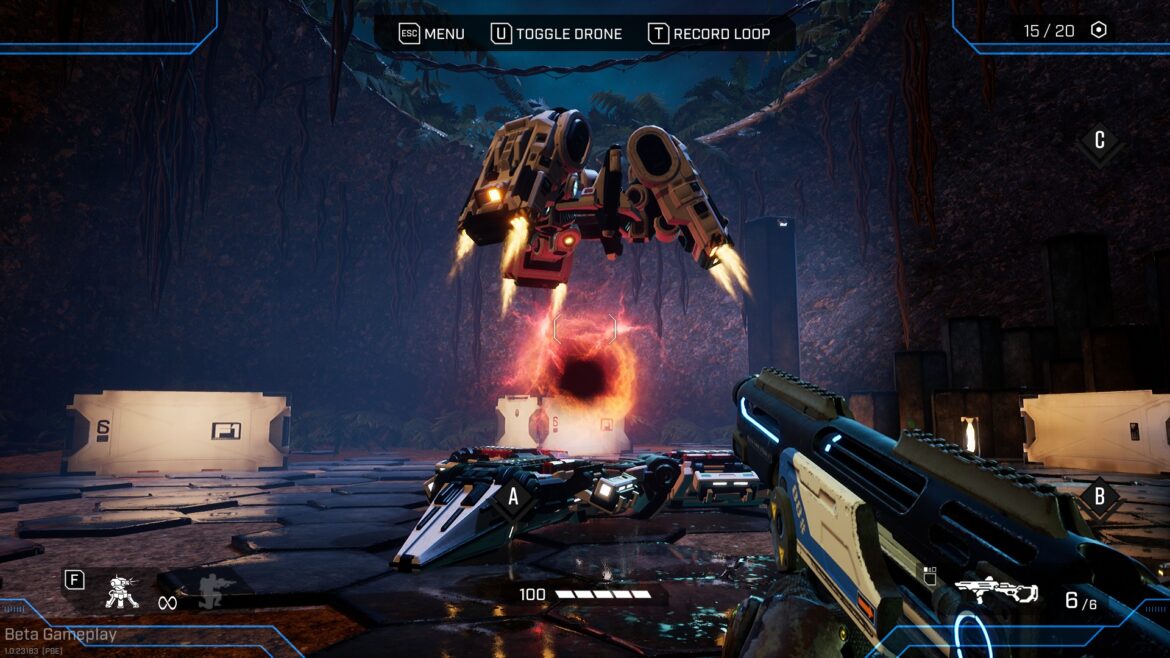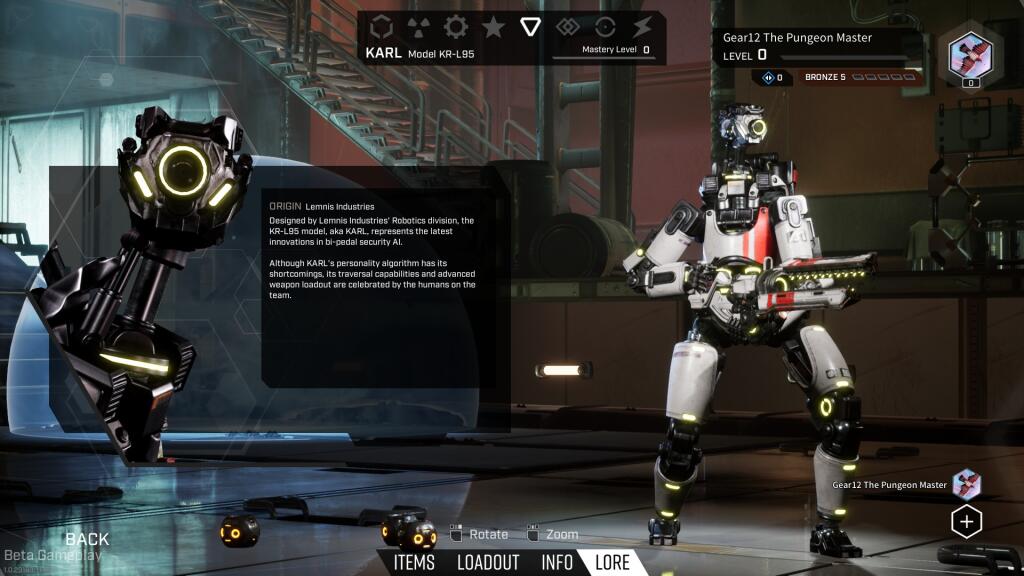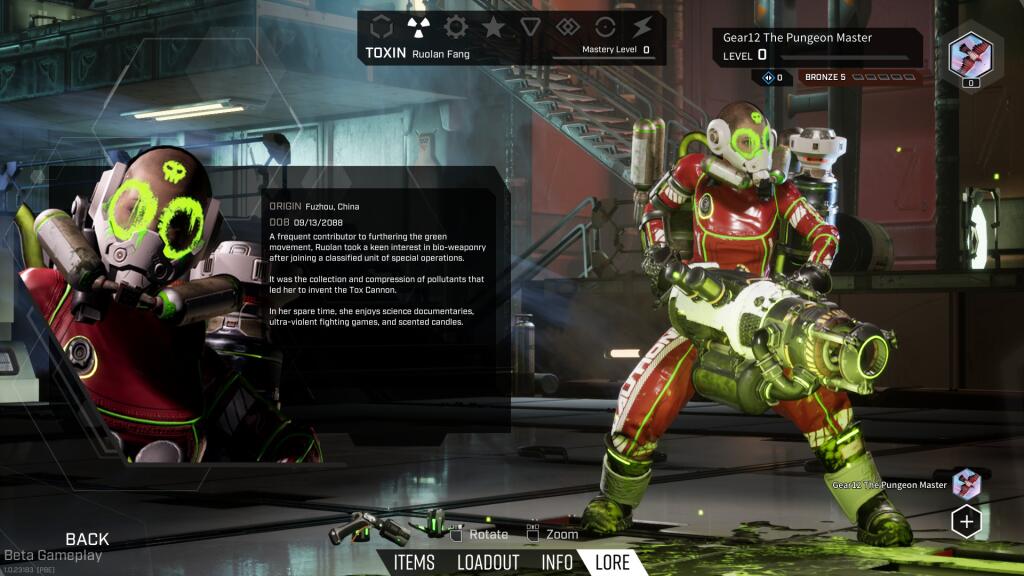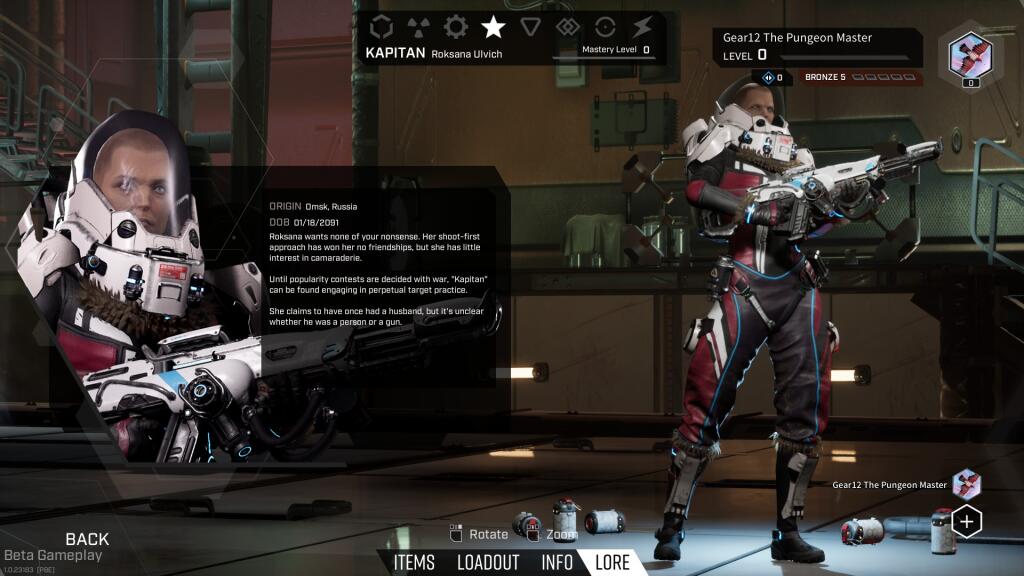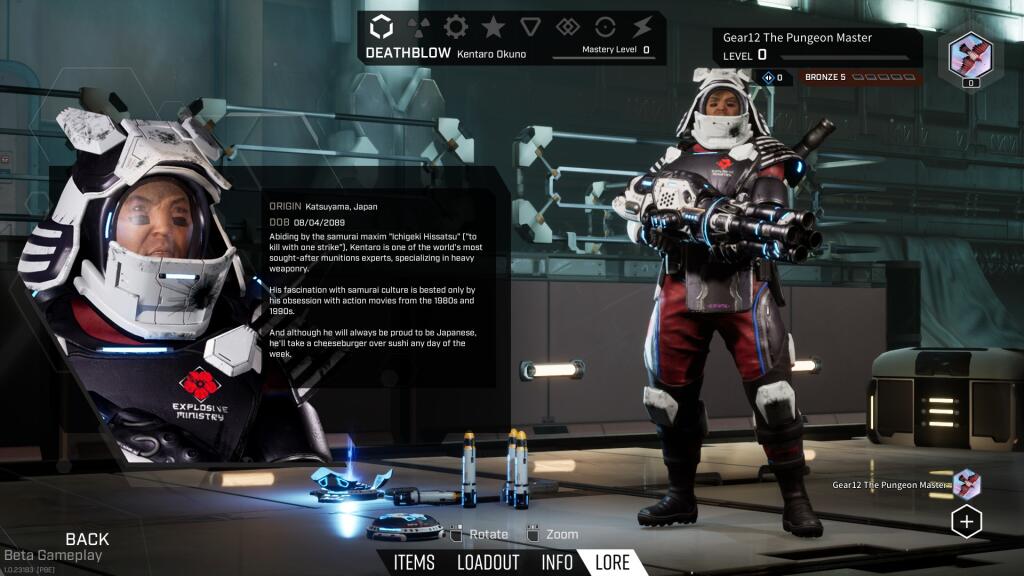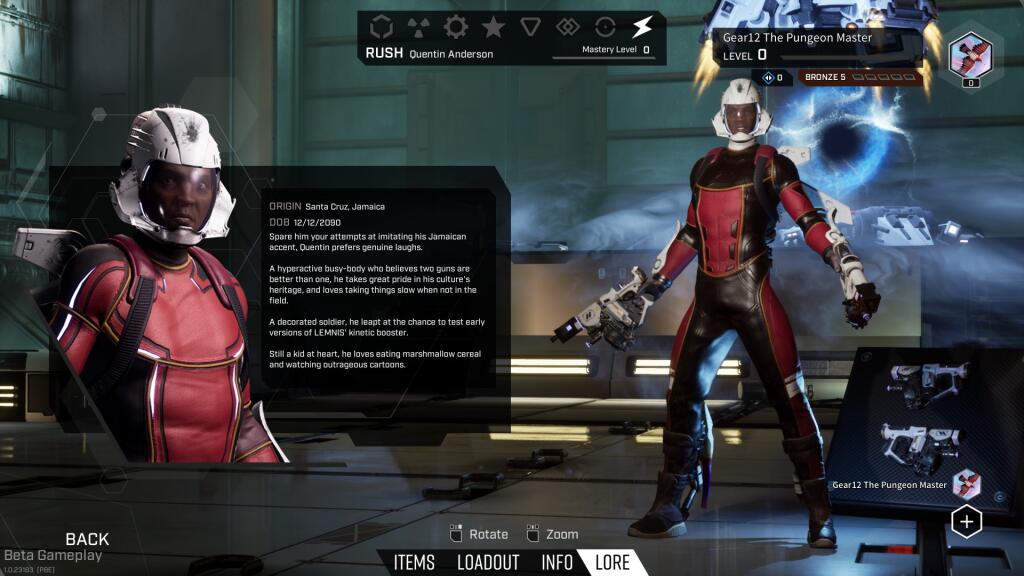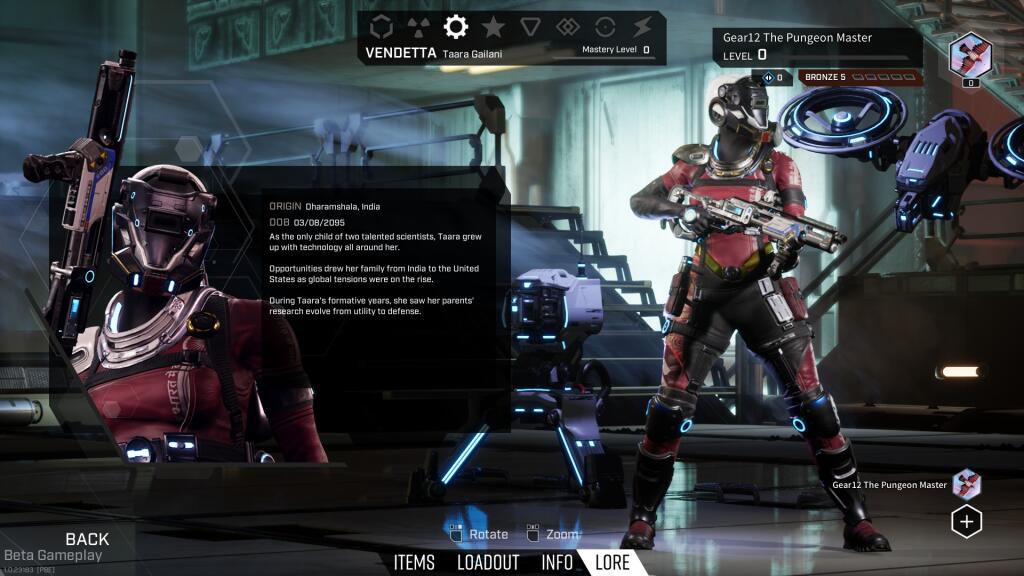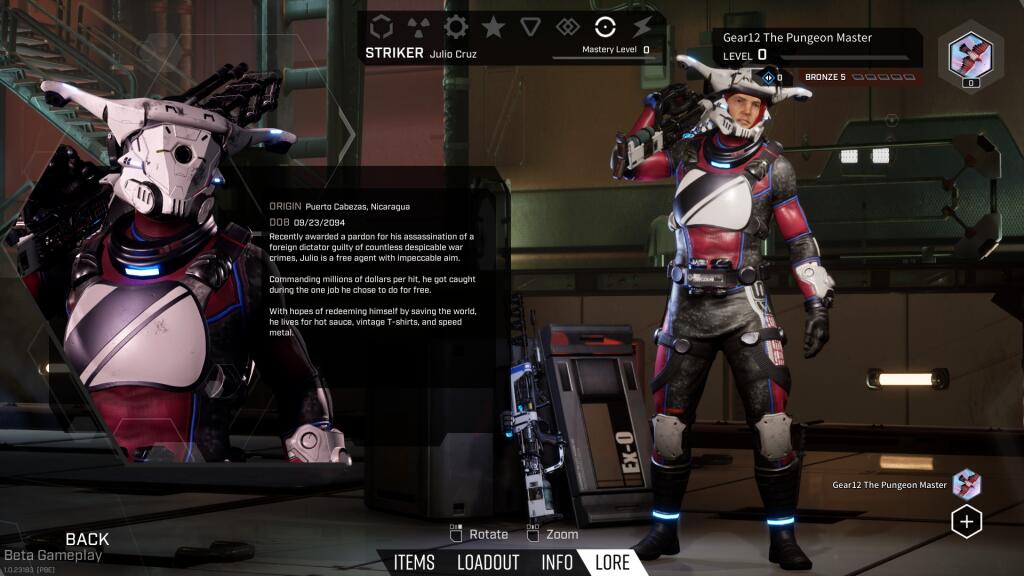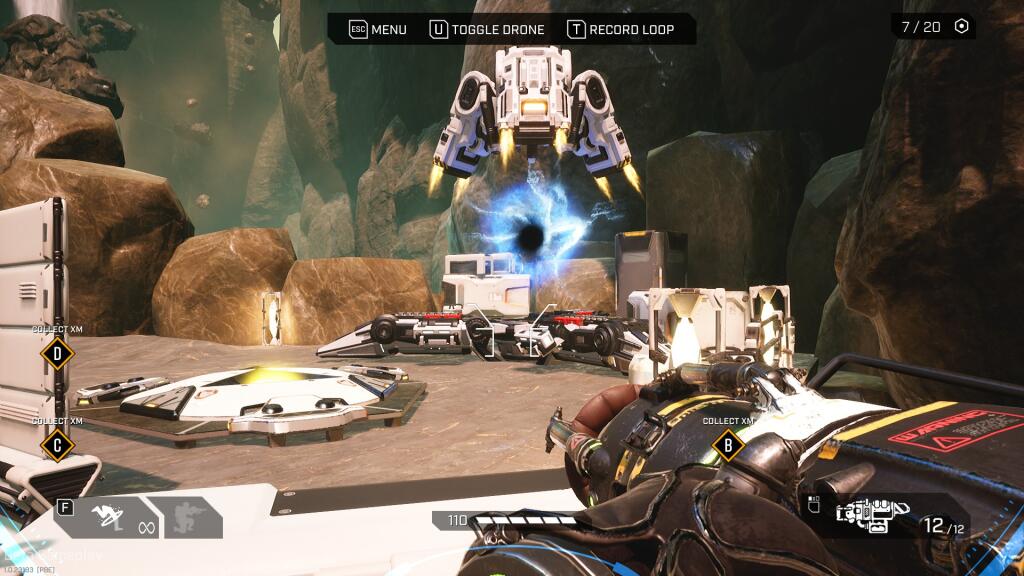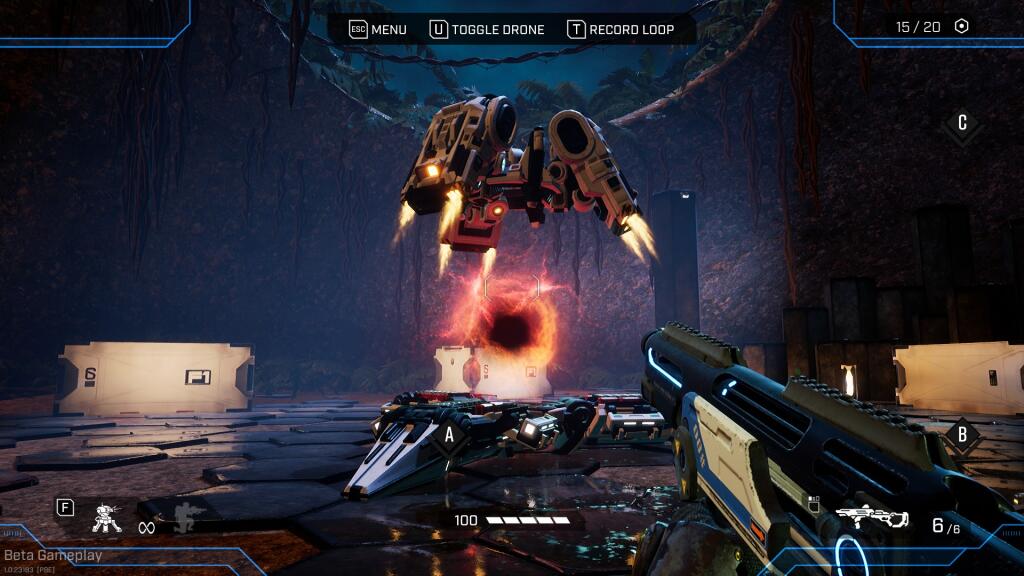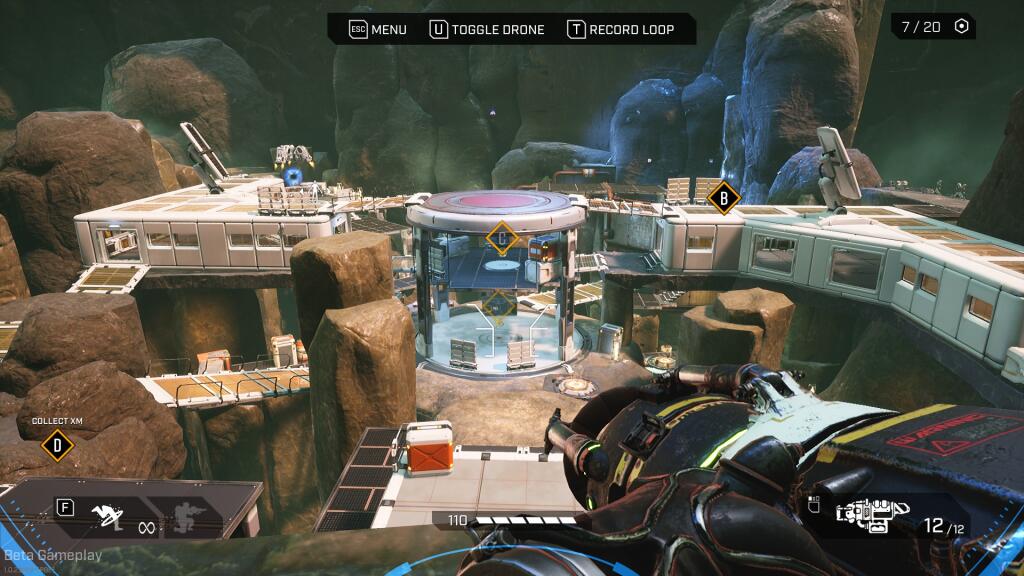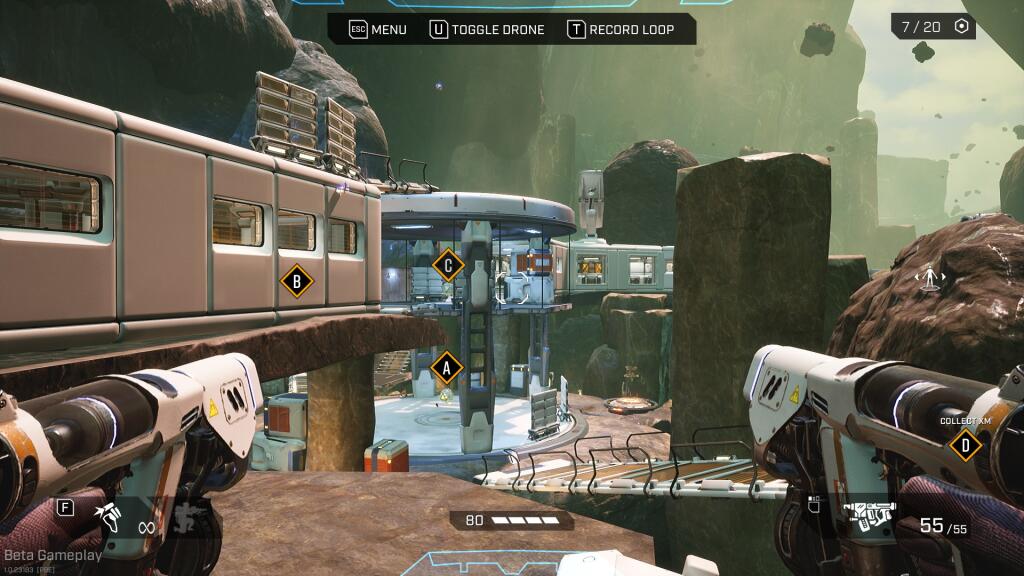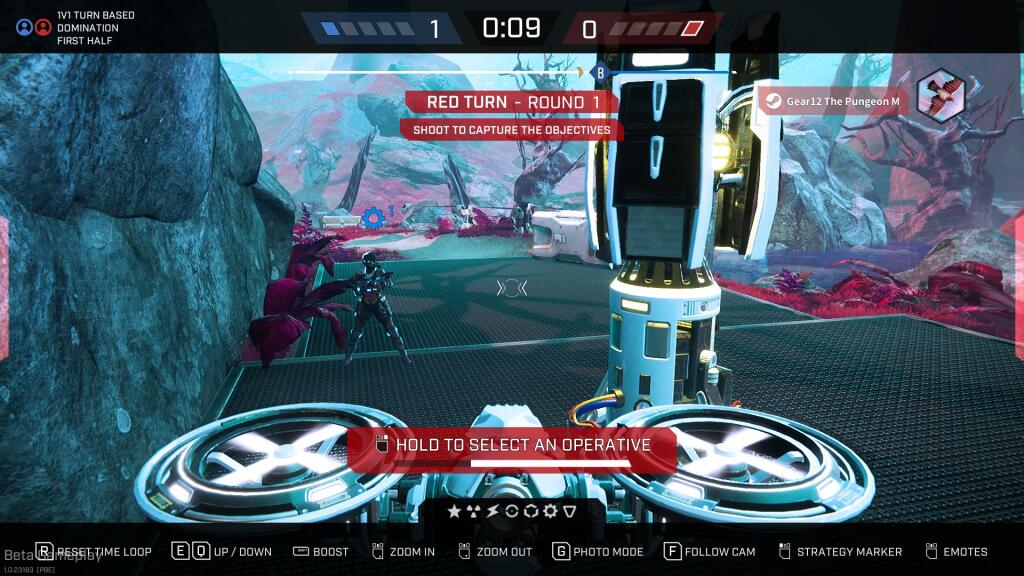Time loop.
Advisory: The game featured in this article is rated T for violence.
For my first foray into Lemnis Gate‘s beta I played against myself. I wanted to get a feel for the characters before playing against a real person. I was fixated on pursuing objectives — so much so that I forgot to stop my opponent (me) from achieving their goals. The game ended in a draw with 10 operatives shooting at posts to charge them up, each side hoping their side would do it faster than the other side could manage. That was not the case.
Lemnis Gate is a strategic first-person shooter where you and your opponents take turns deploying Operatives onto a map to achieve objectives, including bringing a resource back to your spawn point, destroying certain objects, or powering up objects by shooting them. It plays in games where each player gets five rounds each, with each round being a 25-second sprint to achieve as much as possible with the Operative you’re controlling, or by setting yourself up for future rounds by making preparations that impact subsequent rounds.
Each Operative’s actions are recorded by the game and happen on subsequent rounds like a ghost racer in Mario Kart that can still be interfered with while the matches themselves are contested under best-of-three rules.
Seven operatives are on tap, all with their own personalities, loadouts and special abilities. They’re pretty stock, personality-wise, generally excited and just a little sassy, filled out with sections on their character pages that give you a few paragraphs of backstory – something I’d like to see expanded.
The lines the Operatives shout out during gameplay don’t give that much characterization either, leading to few opportunities to get invested in any of them. Take something like Overwatch as a comparison: its characters have extensive backstories and interpersonal relationships that are established by animated shorts and reinforced by in-game dialogue.
I know who Winston is. I’m confident you do too. I can’t say the same for Vendetta.
What drives you?
One early disappointment is the lack of single player content. There are tutorials that teach you the basics, a room where you can play practice rounds, some small side rooms that let you practice individual characters in obstacle courses, and an offline mode that lets you play locally with a friend or against yourself to practice. There are collectibles to find in each map but I didn’t manage to discover any reason for them to be there beyond being collectible.
Lemnis Gate’s trailer tells of an Earth on the brink of collapse that can only be saved by the revolutionary technology of the titular gate. But there’s no story to this game. The version of the game I played doesn’t explain that further. What is the Lemnis Gate? How will it save humanity? Why are there enemy teams of Operatives at all if the goal is to save all of humanity? I want to learn more about this world and why we’re doing the things we’re doing.
The unfortunate nail in the mechanical coffin is that the gameplay is not exactly compelling. It’s functional, sure, but it’s just not exciting. It’s all just… fine.
Margin of error
If you’ve played any modern FPS you will know instantly how this one plays. The time loop gameplay is an interesting twist on competitive gameplay but also very niche. Strategy games and FPS games test vastly different skill sets and the combination of the two is something I’ve never really seen before so I don’t know who this really appeals to.
The five-round system can potentially lead to some swingy games, but when I played it, it just felt like it was too long.
In one game, I made one mistake in the third round with an area-of-effect weapon that was pretty much unfixable, meaning I had lost the game, but had to wait two more painstaking rounds before formally losing.
You can concede between games, but unless you just quit out of the game entirely, there’s no way to go to the next game and try again. Being stuck in a game you can’t win is incredibly demoralizing.
The obvious comparison here is Overwatch again, as they’re both objective-based team shooters with distinct characters, but I don’t think it’s an entirely fair comparison. While those descriptors are all true, I believe the time loop mechanic makes a good case for Lemnis Gate standing on its own feet as a game. It adds a layer of a different kind of strategy than I’ve seen in other competitive shooters.
Where Overwatch is all about optimizing the makeup of your team to your players’ play styles and coordinating with each other in the moment, Lemnis Gate involves a lot more thinking ahead and reacting to your opponent after the fact. You have control over your entire squad in Lemnis Gate and not just a singular character.
You decide where everyone goes and what they shoot at and it’s your decisions just as much as your opponents’ that will decide who comes out on top.
The time loop means that every choice you make is one you have to commit to for the rest of the game. If you mess up while moving your Operative, your opponent is going to notice and will be able to capitalize on it to punish you.
The choices we make
Then you have another choice: do you try to use another round to protect that Operative? Or do you consider them a lost cause and try something else?
One thing I do wonder is if any sort of competitive scene will form around this game. In my limited time with it I did start to see the importance of practice and repetition. High-level gameplay will involve intimate knowledge of the maps and the Operatives that can at least form a baseline preparedness. The small scope of seven Operatives and four maps might get boring for casual players but it also means hardcore players can really specialize.
Ultimately I am left wondering: who is this game for? I don’t really think it’s much of a social game because you can only play it with up to four people, and the strategic element means you’ll probably be too focused on the game for banter. Is it purely a competitive game? That’s most likely where it will shine, but I worry that it might not be interesting enough to draw people away from the heavy hitters like Overwatch or Apex Legends.
I was hoping Lemnis Gate would bring me the same sort of joy that I got when I first encountered Halo at a friend’s house as a teenager. Unfortunately it couldn’t live up to that dream. My limited time spent playing the game was definitely interesting, but I just don’t think I’ll be able to get invested in Lemnis Gate in the long term. The mechanics are all solid enough to make a functional competitive experience and that might be enough for some people. For me, though, it’s missing the character, flavor, and narrative verve that really pulls me into a game of this type.
These impressions are based on a beta key provided by the publisher. Images captured by the author in-game.
Hylke Langhout has been writing about games since 2012 and believes in their artistic value and the social power of play. He plays both board games and videogames regularly and wants you to do so as well. You can find him on Twitter at @Gear12_Turbo.
